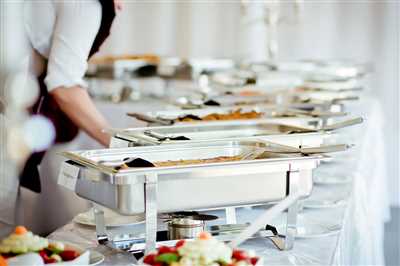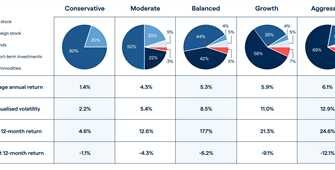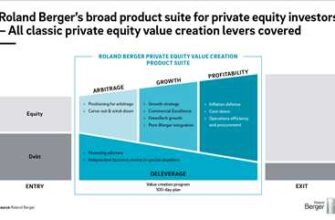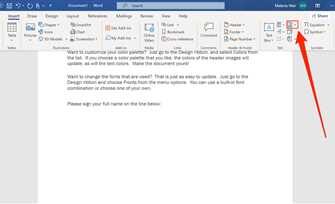
If you have a passion for food and enjoy serving others, starting a catering business could be the ideal venture for you. This type of restaurant industry allows you to prepare and deliver foodservice to a variety of audiences, including corporate offices, family gatherings, and special events. However, like any other business, this venture requires careful planning and investment.
Before getting started, it’s important to have a clear understanding of the target audience you’ll be serving. This will help you create a menu and pricing structure that will appeal to your customers. You’ll also need to decide on the type of catering service you want to offer. Some businesses focus on a specific niche, such as wedding catering or corporate events, while others provide a wide range of services.
Once you’ve identified your target audience and service offerings, you’ll need to find suppliers for the food and other items you’ll need. This may require some research and negotiation to get the best price and quality for your ingredients and equipment. Keep in mind that the amount of investment needed will depend on the size and scope of your business.
In addition to the initial startup costs, you’ll also need to consider ongoing expenses such as rent for a commercial kitchen space, staff wages, and insurance. Insurance is especially important in the catering business, as there is always a risk of accidents or food-related issues. It’s worth getting comprehensive liability insurance to protect your company.
Before you start advertising your services, it’s essential to create a sample menu and prepare some dishes to taste. This will help you showcase your culinary skills and give potential customers a better idea of what to expect. You may also want to consider offering tastings for clients, so they can experience your food firsthand.
Marketing will play a crucial role in getting your catering business off the ground. You can use social media and other online platforms to promote your services and connect with potential clients. It’s also worth visiting local events and networking within the industry to build relationships and gain exposure.
Ultimately, the success of your catering business will depend on the quality of your food, the level of service you provide, and your ability to manage the business effectively. With careful planning, preparation, and a dedication to customer satisfaction, you can build a thriving catering business that becomes a trusted name in your area.
- How to Start a Catering Business
- How to start a catering business from home
- 01 Decide your catering item
- 02 Fixed the financial budget
- 03 Target audience
- 04 Create menu with price based on client intent
- 05 Catering space
- 06 Hire food supplier
- 07 Buy a vehicle to deliver food
- 08 Taste the Dishes That You Made At Your Home
- 09 Set Up Your Kitchen
- 10 Get Liability Insurance
- The Investment Needed to Start a Catering Business
- Final Thought
How to Start a Catering Business
Starting a catering business can be a rewarding venture that allows you to showcase your culinary skills and bring delicious food to a variety of events. Whether you’re just starting out or have years of experience in the food industry, here are 10 essential steps to help you get your catering business off the ground.
- Define Your Intent: Before diving into the catering industry, it’s important to clearly define your goals and intentions. Consider the type of catering services you want to offer, whether it’s corporate events, weddings, or private parties.
- Do Your Research: Once you have a clear idea of your target audience and the type of catering services you want to provide, research the market and learn more about your competitors. This will help you understand the demand, pricing, and competition in your area.
- Develop a Business Plan: A solid business plan is essential for any startup. Outline your financial goals, marketing strategies, target audience, and pricing structure. This will serve as a roadmap for your catering business.
- Find a Suitable Location: Depending on the type of catering service you provide, you may need a dedicated kitchen space. Consider whether a home-based kitchen or a separate commercial space is ideal for your business. Take into account factors such as rent, utilities, and space requirements.
- Get the Necessary Licenses and Permits: Before launching your catering business, ensure that you have obtained all the required licenses and permits. This includes registering your business, obtaining liability insurance, and meeting health and safety regulations.
- Build Your Menu: Create a menu that will appeal to your target audience. Consider the type of events you will be catering for and choose items that are both delicious and visually appealing. Taste test your dishes and get feedback from others to refine your menu offerings.
- Source Reliable Suppliers: Establish relationships with suppliers who can consistently provide high-quality ingredients and products for your catering business. This will ensure that you can deliver exceptional food each time.
- Set Your Pricing: Determine how much to charge for your catering services. Consider the cost of ingredients, preparation time, and the level of service you provide. Research the market to ensure your prices are competitive and attractive to potential customers.
- Hire Staff: Depending on the size and scale of your catering business, you may need to hire additional staff to assist with food preparation, serving, and event setup. Ensure that your team is well-trained and capable of delivering excellent service.
- Market Your Business: Utilize various marketing strategies to promote your catering services. Develop a strong online presence, create a social media presence, and engage with your target audience. Consider offering tastings or attending local events to showcase your food and attract potential customers.
Starting a catering business requires careful planning, financial investment, and an understanding of your target audience. By following these steps, you can set yourself up for success in the catering industry. Remember, delivering delicious food and exceptional service should always be your top priority.
How to start a catering business from home
Starting a catering business from home can be a rewarding and lucrative venture for those with a passion for food and a knack for organization. If you’re ready to turn your culinary skills into a business, here are some steps to get you started.
- Define your intent and target audience: Determine what type of catering services you want to offer and identify your target audience. Are you interested in providing lunch options for local offices or catering elegant events and weddings?
- Research the market: Visit local restaurants and caterers to get an idea of the competition and pricing in your area. Find out what potential customers are looking for and what services are already being provided. This research will help you better understand the market and identify gaps you can fill.
- Create a business plan and budget: Decide how much you’re willing to invest in your catering startup and create a budget. Consider the cost of necessary equipment, kitchen supplies, staff hiring, food ingredients, and insurance.
- Set up your home kitchen: Ensure that your kitchen meets all the necessary health and safety standards to prepare food for a large number of people. You might need to make some adjustments or renovations to comply with local regulations.
- Source reliable suppliers: Find suppliers who can provide you with quality ingredients at a reasonable price. Establish good relationships with them to ensure a consistent supply of fresh and reliable ingredients.
- Plan your menu: Decide on the types of dishes you’ll offer and create a menu that appeals to your target audience. Consider dietary restrictions and preferences when selecting your menu options.
- Invest in marketing and social media: Set up a website and create social media accounts to promote your catering business. Share photos of your dishes and provide information about your services. Engage with your audience and respond to inquiries promptly.
- Decide on your pricing: Determine how much you’ll charge for your catering services. Take into account the cost of ingredients, staff, and overhead expenses, while also considering what your target audience is willing to pay.
- Get the necessary permits and licenses: Check with your local government about the permits and licenses you need to operate a home-based catering business. This might include health department certifications, food handling permits, and business licenses.
- Hire staff if needed: Assess whether you’ll need additional staff to help with food preparation, delivery, and event setup. Hire individuals who are reliable and have the necessary skills and experience.
- Start small and grow steadily: Begin by taking small catering gigs within your network and gradually expand by word of mouth and referrals. Provide exceptional service and aim to exceed customer expectations to build a solid reputation in the industry.
Starting a catering business from home requires careful planning, attention to detail, and a strong commitment to customer satisfaction. If you’re willing to put in the effort, it can become a rewarding and profitable venture.
01 Decide your catering item
When starting a catering business, one of the first things you need to do is decide on the type of food or dishes you will offer. This decision will determine your target audience, the pricing of your services, and the amount of investment needed to start your catering company.
Before you decide on the items to include in your catering menu, think about your intended audience. What type of food or dishes will they enjoy? What are their preferences and tastes? It’s important to create a menu that appeals to your target customer base.
Once you have decided on the type of food or dishes you want to offer, you’ll need to create a menu list. This list will help you keep track of the items you offer and the pricing for each item. Make sure to consider the cost of ingredients, cooking time, and the amount of staff needed to prepare each dish.
Some catering businesses choose to specialize in a specific type of cuisine, while others offer a wide variety of dishes. Whatever you decide, make sure that you have the necessary kitchen space and equipment to prepare the items on your menu.
Starting a catering business can be a risky investment, so it’s important to consider the financial implications. You’ll need to invest in kitchen equipment, food supplies, and hire staff to help with food preparation and service. Be sure to calculate the fixed costs and variable costs associated with your catering services.
There are different types of catering services to consider, such as home-based catering or catering from a commercial kitchen. The type of service you choose will depend on your resources and the level of investment you are willing to make.
It’s also important to think about liability and insurance when starting a catering business. You’ll need to find the right insurance coverage to protect your company and your customers in case of any accidents or food-related issues.
Before you start your catering business, it might be worth getting some help or advice from sources such as financial management consultants or successful catering entrepreneurs. They can provide valuable insights and guidance to help you make better financial decisions and manage the risks associated with running a catering business.
In conclusion, deciding on your catering items is one of the first steps you need to take when starting a catering business. Consider your target audience, create a menu list, calculate the financial investments needed, and ensure you have the necessary kitchen space and equipment. With careful planning and execution, your catering business can become a success.
02 Fixed the financial budget
Before starting a catering business, it is essential to fix your financial budget. Starting any business involves risk, and catering services are no exception. Therefore, it is vital to understand how much investment you are willing to make and the amount of financial risk you are willing to bear.
Firstly, decide on the type of catering business you intend to start. Will it be a home-based catering service or a restaurant-based one? The type of business you choose will determine the initial investment required.
If you decide to start a home-based catering business, the investment might be lower than a restaurant-based catering business. However, you might have limits on the number of people you can serve due to space constraints. Moreover, you’ll have to consider the cost of insurance coverage for your home-based business.
Next, you need to evaluate the cost of equipment and supplies, such as cooking utensils, serving dishes, and other kitchen essentials. You must also take into account the cost of getting the necessary permits and licenses to operate your catering business legally.
In addition to the upfront investment, you must also consider ongoing expenses such as staff wages, food supplies, and marketing. The pricing of your catering services will depend on the type of audience you intend to target and the market demand. You must set a reasonable price that covers your costs while providing a competitive edge.
When estimating the budget, don’t forget to factor in the cost of menu planning. Depending on your client’s intent and the type of event, you may need to cook up a variety of dishes. You’ll want to offer a menu that appeals to your target audience and showcases your culinary expertise.
While creating the final budget, keep in mind that the taste and quality of food you provide are of utmost importance. People will always remember the quality of food at an event, and word-of-mouth can make or break your catering business.
In conclusion, before starting a catering business, it is crucial to fix your financial budget. Assess the type of catering service you want to offer, determine the initial investment required, and consider ongoing expenses. Carefully plan the pricing, menu, and target audience to ensure your business is worth the investment. Remember, successful catering services depend on delivering excellent food and exceptional customer service.
| Key Points: | 01. Decide on the type of catering business you intend to start 02. Determine the initial investment required 03. Evaluate the cost of equipment and supplies 04. Consider ongoing expenses such as staff wages, food supplies, and marketing 05. Set a reasonable price that covers your costs but remains competitive 06. Plan a menu that appeals to your target audience 07. Remember the quality of food is essential to your success 08. Provide exceptional customer service 09. Fix your financial budget before starting the business 10. Ensure your business’s worth the investment |
03 Target audience
When starting a catering service, it is important to identify your target audience. Knowing who your customers are will help you better tailor your services to their needs and preferences.
There are several different types of audiences that catering services often cater to:
1. Corporate clients: Many businesses and offices rely on catering services to provide meals for meetings, conferences, and other corporate events. This audience often requires a large amount of food and may have specific dietary requirements. It is worth considering offering a separate menu for corporate clients.
2. Event organizers: Those who organize special events, such as weddings, parties, and fundraisers, often hire catering services to take care of the food and beverages. This audience may be looking for a variety of menu options and will typically expect high-quality dishes.
3. Home-based clients: Some individuals or families may prefer to have a catered meal at home, either for a special occasion or simply to enjoy a delicious meal without having to cook. Services that offer home delivery or on-site cooking can be especially appealing to this audience.
4. Restaurants and food suppliers: Catering services are often hired by restaurants and food suppliers to prepare and deliver meals. This type of audience might have specific requirements in terms of food quality, delivery times, and pricing.
When determining your target audience, you should also consider the intent of your potential customers. Are they looking for a one-time service for a specific event, or are they seeking a long-term partnership with a catering service? This will help you better tailor your marketing and pricing strategies.
It is also important to think about your location and the specific needs of your local community. For example, if you are located near office buildings, targeting corporate clients and offering a lunch delivery service might be a great idea.
Before you start marketing your catering services, make sure you have all the necessary permits and licenses. Additionally, consider investing in insurance to protect your business from any unexpected risks.
A final thought: listing your target audiences and brainstorming ideas on how to reach them can help you define your marketing and business plan. Prepare a comprehensive list of your potential customers, set a fixed pricing structure, and determine the amount of menu items that you will offer. This will give you a clearer vision of how to start your catering services.
04 Create menu with price based on client intent
One of the most essential steps in starting a catering service is creating a menu with prices that align with your target customers’ intentions. This will help you attract the right clients and ensure that you’re pricing your services in a way that is both reasonable and profitable.
First, you need to decide on the dishes you will offer. Consider your customer base and what types of food they would be interested in. You may choose to specialize in a specific cuisine or offer a variety of options to cater to different tastes.
When deciding on the prices for your menu, you must take into consideration the cost of ingredients, preparation time, and any additional services you may provide, such as delivery or event setup. It’s important to set prices that cover your costs while also giving you a reasonable profit margin.
Consider the investment you’ve made in your startup catering company. You may have had to purchase cooking equipment, a vehicle for transportation, or a space to prepare food. These fixed costs should be factored into your pricing to ensure that you can cover them and still make a profit.
Furthermore, you should consider the financial risk involved in starting a catering service. You may be taking on liability for any food-related issues that may arise, so it’s important to set prices that will help you manage this risk.
You should also take into account the competition in your area. Research what other catering services are charging for similar menus and consider how you can differentiate yourself from them. Offering unique dishes or providing exceptional customer service can give you a competitive edge.
Another factor to consider is the target audience you’re trying to reach. If you’re targeting corporate offices, for example, you may need to offer lunch packages at a reasonable price. On the other hand, if you’re catering to high-end events, your prices can be higher, reflecting the level of service and quality you provide.
While pricing your services, it’s important to find the right balance. You want to attract customers with reasonable prices, but you also need to ensure that you’re making a profit. Take into account the overhead costs, staff wages, and the amount of time and effort it takes to prepare and deliver the food.
Lastly, having a strong online presence and using social media can help you reach more people and attract potential customers. Many people now use the internet to search for catering services, so be sure to optimize your website and use platforms like Facebook and Instagram to showcase your offerings.
In summary, creating a menu with prices based on your client’s intent is a crucial step in starting a catering service. Consider your target audience, the cost of ingredients, and the competition in your area. Set reasonable prices that will help you cover your costs while also attracting customers. Remember, it’s essential to find the right balance between affordability and profitability in order to build a successful catering business.
05 Catering space
When starting a catering service, one of the key considerations is finding the right catering space. The space you choose will depend on various factors such as the type of catering service you want to provide, the target audience, and your budget.
If you plan to offer lunch services for offices, you might need a space that can accommodate a large number of people. On the other hand, if you plan to offer catering services for family events or parties, you might need a smaller space.
It’s essential to consider the amount of space you’ll need to cook and store food. You’ll also need space to create an appealing menu and store all the necessary ingredients. Some catering businesses choose to rent a space, while others operate from home.
While setting up a catering space, you’ll have to think about the layout and design. The space should be easily accessible for staff to move around and cook efficiently. It should also be clean and well-maintained to meet health and safety standards.
Another consideration is the equipment and supplies you’ll need. This will depend on the type of food and dishes you plan to prepare. Some items, such as serving trays and utensils, might be provided by the client or the venue, while others you’ll have to buy or rent.
Moreover, it’s worth mentioning that insurance is an essential investment to protect your catering business from any financial liability or risk. The amount of insurance coverage will depend on various factors, including the size of your business and the types of services you provide.
In conclusion, finding the ideal catering space is a crucial step when starting a catering service. You should carefully consider the type of services you plan to offer, the target audience, and your budget. The space should be well-equipped, easily accessible, and meet all health and safety regulations.
06 Hire food supplier
When starting a catering business, one of the most important decisions you’ll have to make is choosing a reliable food supplier. This is crucial because the success of your startup depends on the quality and availability of ingredients.
There are several factors to consider when selecting a food supplier:
- Location: The supplier should be based within your local area or have the ability to deliver to your kitchen or restaurant easily. This will ensure that you have fresh ingredients and reduce transportation costs.
- Quality: Taste is everything in the foodservice industry. Make sure the supplier offers high-quality items that meet your standards and the preferences of your target audience.
- Pricing: When deciding on a food supplier, you should consider your budget and the pricing of their products. Look for reasonable prices that allow you to create a menu that is both appealing to your customers and profitable for your business.
- Range of products: The supplier should have a wide range of ingredients that you need to prepare your menu. Make sure they can provide you with a fixed stock of essential items.
- Reliability: Your food supplier must be dependable and consistent in delivering the products you need. This will help you avoid any delays or disruptions in your catering service.
- Supplier’s reputation: Before finalizing a food supplier, do some research to ensure that they have a good reputation in the industry. Check for any reviews or recommendations from other businesses.
- Insurance and licenses: It’s important to choose a food supplier who has proper insurance and licenses. This will protect your business from any potential risk or liability.
Take the time to visit potential suppliers and sample their products. This will let you gauge the quality and taste of their ingredients. It’s also a good idea to meet with them and discuss your business’s needs and requirements.
Some catering businesses might choose to become home-based, while others might operate from commercial kitchens or even have their own restaurant spaces. Depending on your business model, you can decide whether you want to work with large food suppliers or local producers.
Remember, your food supplier will play a crucial role in the success of your catering business. Choose one that aligns with your values, meets your budget requirements, and can consistently deliver high-quality ingredients.
07 Buy a vehicle to deliver food
When starting a catering business, it is important to have a reliable vehicle that will allow you to deliver food to your customers. You may already have a vehicle that can be used for this purpose, or you may need to purchase a new one.
If you choose to buy a vehicle, there are a few considerations to keep in mind. First, decide on the type of vehicle that will best suit your business needs. This will depend on the size and space requirements for delivering your dishes. Some catering businesses may only need a small car, while others may require a larger truck or van.
Visit some local dealerships to check out the options available and compare pricing. Make sure to consider the space needed to transport food safely and keep it at the right temperature. You’ll also need to check if the vehicle has the necessary insurance coverage for a catering business.
If your budget is limited, you can also look into leasing a vehicle instead of buying it outright. Leasing will allow you to get a vehicle for a lower upfront price, and you can often negotiate a competitive monthly lease payment. Just make sure that the lease terms include the required insurance coverage and any other necessary features.
When choosing a vehicle, always keep your target audience in mind. If your catering services are mainly for offices, a vehicle that can easily navigate and park in urban areas may be more suitable. On the other hand, if you plan to cater events and family functions, a larger vehicle with more space may be needed to accommodate larger orders.
Investing in a reliable vehicle is an essential part of starting a catering business. It will allow you to deliver your delicious food to customers on time, ensuring customer satisfaction and repeat business. Whatever vehicle you decide to get, make sure it is within your financial budget and meets the requirements of your startup catering company.
08 Taste the Dishes That You Made At Your Home
As you start your catering services, it’s important to have confidence in the food you will be preparing and serving to your clients. One way to gain that confidence is by tasting the dishes that you have made at your home kitchen.
Before you start your catering business, you first need to decide on the type of food you will be offering to your target audience. You can choose to prepare a wide variety of dishes or specialize in a specific cuisine. Whatever you decide, make sure it aligns with your personal preferences and culinary skills.
Once you have thought about the type of food you’ll be preparing, visit different suppliers to find the best ingredients. It’s important to choose suppliers that offer high-quality products at a reasonable price. You’ll need to buy a sufficient amount of ingredients to cater to your clients’ needs.
Back at your home kitchen, start cooking and experimenting with different recipes. Taste the dishes as you go along to ensure that they meet your standards and are delicious. If needed, make adjustments to the seasonings or cooking techniques.
While you’re preparing the dishes, think like a chef in a restaurant or catering company. Consider the final presentation, the flavors, and the overall experience that your clients will have when they taste your food. You want to bring the same level of quality and attention to detail to your catering service.
Once you have perfected your dishes, it’s time to give them a try with others. Invite your friends, family, or even potential clients to sample the food and provide feedback. This not only helps you to get an objective opinion on your creations, but it also builds anticipation and buzz around your catering startup.
When you deliver your catering services, be sure to bring the same care and attention to your clients’ events. Make sure the food is well-prepared, delivered within the agreed-upon time, and presented in an appetizing manner. Customer satisfaction is key to the success of your catering business.
Lastly, don’t give up if things don’t go perfectly at first. Starting a catering business can be challenging, and it may take time to build a solid reputation and client base. Use social media and other marketing channels to promote your services and become better known within your community.
Overall, preparing and tasting the dishes that you make at your home is a crucial step in starting your catering services. It helps you to refine your culinary skills, find the ideal suppliers, and ensure that your food meets the expectations of your clients. So roll up your sleeves, get into the kitchen, and start cooking those mouth-watering dishes!
09 Set Up Your Kitchen
Setting up your kitchen is one of the most essential steps when starting a catering service. Your kitchen needs to be well-equipped and organized to ensure that you can efficiently prepare and cook the food for your customers.
First, you must decide on the type of catering services you’ll be offering. This will help you determine what items you’ll need in your kitchen. For example, if you’re going to focus on lunch delivery to offices, you might need more convenient and easily transportable dishes.
You’ll need to find suppliers for your ingredients and stock up on the necessary items. Take some time to research and choose reliable suppliers that can provide you with fresh and high-quality ingredients at a reasonable price.
Next, consider the amount of space you have available in your kitchen. Depending on your target audiences and the size of your catering company, the kitchen space needed can vary. However, make sure that you have enough space for all the necessary appliances and equipment.
Make a list of all the equipment you’ll need, such as ovens, stovetops, refrigerators, freezers, and cooking utensils. If you’re just starting and are on a tight budget, you can consider buying used equipment or leasing it until you can invest in brand new items.
Consider the taste and preferences of your target customers when choosing the dishes you’ll offer. You want to provide a diverse menu that caters to different dietary preferences and restrictions. You can also have a few signature dishes that set you apart from the competition.
Once you have everything planned out, design your kitchen layout thoughtfully. Arrange the appliances and supplies in a way that is efficient and allows for easy workflow. Make sure to have designated areas for food preparation, cooking, and cleaning.
It’s also important to take food safety and liability into consideration. Make sure that your kitchen is up to code and meets all the necessary health and safety regulations. This will ensure that you’re providing a safe and hygienic environment for preparing and cooking food.
Finally, invest in proper storage space to keep your ingredients and prepared food fresh. A well-organized stock and storage area will help ensure that you can easily find what you need when it’s time to prepare for an event or delivery.
In summary, setting up your kitchen is a crucial part of starting a catering service. Take the time to thoughtfully plan out your kitchen design, choose reliable suppliers, and equip your kitchen with all the necessary items. This will help you provide a high-quality catering service that will impress your clients and keep them coming back for more.
10 Get Liability Insurance
Starting a catering business involves a certain level of risk. To protect yourself, your clients, and your investment, it’s important to get liability insurance. This type of insurance will cover any damages or injuries that might occur as a result of your catering services.
Liability insurance is especially important in the foodservice industry, where there is a higher risk of accidents and food-related illnesses. It will provide financial protection in case of lawsuits or claims brought against your business.
Before you decide on the type of liability insurance to invest in, consider the size of your business, the number of employees you’ll have, and the type of events you’ll cater to. Different insurance policies have different coverage limits and will require you to pay a specific premium.
You’ll need to contact insurance providers to get quotes based on your specific needs. They will ask you questions about your business and provide you with options that are most suitable for your situation.
Once you have liability insurance, you’ll have peace of mind knowing that you’re protected in case of any unforeseen incidents. This will give your customers confidence in choosing your catering services, knowing that you have taken the necessary precautions.
Remember that home-based catering businesses may have different liability insurance requirements compared to those with dedicated kitchens or offices. The amount of coverage you need will depend on the size and nature of your business.
In addition to liability insurance, it’s also important to have contracts and agreements in place with your clients. This will help clearly define the responsibilities of both parties and protect you in case of any disputes.
To further reduce the risk of liability, you must also ensure that you follow all health and safety regulations. This includes proper food handling, storage, and hygiene practices. Regular inspections and audits will help maintain high standards.
Don’t forget to also document any incidents or accidents that occur during your catering services. This will help you with insurance claims and provide evidence in case of any legal issues.
Getting liability insurance is an essential step in starting your catering business. It may require an initial investment, but it’s worth it to protect yourself and your clients. Research different insurance providers, compare prices and coverage, and choose the policy that best suits your business needs.
Remember, starting a business always involves some level of risk. With the right management, mindset, and precautions, you can create a successful catering startup that delivers quality food and unforgettable experiences to your clients.
The Investment Needed to Start a Catering Business
Starting a catering business can be an exciting and lucrative venture, but it does require a certain amount of investment. Before you can start serving up delicious dishes to eager customers, you’ll need to think about what it will cost to get your foodservice off the ground.
The amount of money you’ll need to invest will depend on a variety of factors, such as the type of cuisine you’ll be offering, the size of your target audience, and the space you’ll need to prepare and stock your inventory. On average, it is said that starting a catering business can cost anywhere from $2,000 to $10,000.
One of the first things you’ll need to decide is what type of menu you want to offer. This will often depend on the cuisine you’re most skilled at preparing and the tastes of your target audience. Whatever dishes you choose, you’ll need to buy the ingredients and stock up on the necessary items to prepare and serve them.
In addition to the cost of ingredients and supplies, you’ll also need to think about the cost of kitchen space and equipment. Depending on the size of your startup, you might be able to operate out of your own home kitchen. However, if you plan on serving larger audiences or need more space, you may need to rent a commercial kitchen.
It’s also worth noting that there are certain fixed costs associated with starting a catering business. These include licensing and permits, insurance, and fees for any necessary certifications. It’s essential to budget for these expenses to ensure you’re compliant with local regulations and protect your business and customers.
Another significant investment you may need to make is marketing and advertising. Without a proper marketing strategy, it will be challenging to attract customers to your catering services. Consider the costs of designing a website or print materials, as well as any digital marketing campaigns you may want to launch to reach your target audiences.
Lastly, you’ll need to think about the staff, if any, that you’ll need to hire. Depending on the size and scope of your catering business, you may need additional help in the kitchen, at events, or with administrative tasks. This is another expense that should be factored into your budget.
In conclusion, starting a catering business requires a reasonable amount of investment. The exact amount will vary based on a range of factors, but you’ll need to plan for costs such as ingredients, kitchen space and equipment, licensing and permits, marketing, and staff. By carefully considering the investment needed and budgeting accordingly, you can set your catering business up for success!
Final Thought
Starting a catering business requires careful planning and investment. Before you jump in, take the time to create a budget and decide how much financial investment you’re willing to make. Consider whether you’ll be operating from a home-based kitchen or if you need to rent a commercial space. You’ll also need to invest in the necessary equipment, such as cooking tools, utensils, and vehicles for food delivery.
When it comes to the type of food you’ll serve, it’s important to consider your target audience and their tastes. Catering to a specific audience or niche can help you stand out from the competition and attract more customers. Additionally, you must ensure that the dishes you offer are made with high-quality ingredients and have a taste that will impress your clients.
Managing your inventory is crucial for a successful catering business. You’ll need to stock up on ingredients and other items in advance so you can prepare the dishes on time. Building a good relationship with suppliers is essential to ensure a steady supply of fresh and high-quality ingredients. Remember to compare prices and choose suppliers that offer the best value for your money.
In terms of pricing, consider the amount of money you’ve invested and the amount of profit you’d like to make. Take into account your competitors’ pricing, but also consider the value you bring to your customers. If you offer exceptional service, unique menu items, or specialized dietary options, you might be able to charge a higher price. However, be mindful of setting your prices too high, as it could deter potential customers.
Marketing and promotion are also crucial aspects of starting a catering business. You need to create a strong online presence through a website and social media platforms. Utilize the power of social media to attract and engage with your target audience. Sharing mouthwatering photos of your dishes, posting testimonials from satisfied clients, and showcasing your skills through videos can all help attract more customers.
Lastly, it’s important to have proper business management and liability insurance in place. This will protect you from any unforeseen circumstances or accidents that may occur while delivering your services. Having a solid management system will help you stay organized and ensure smooth operation of your business.
In conclusion, starting a catering business can be a rewarding venture if done with the right intent and planning. By investing time, effort, and resources, you can create a successful startup that caters to the needs of your target audience. Remember to adapt to the ever-changing tastes and preferences of your customers and continuously strive to deliver the best quality and service. Good luck on your journey!










